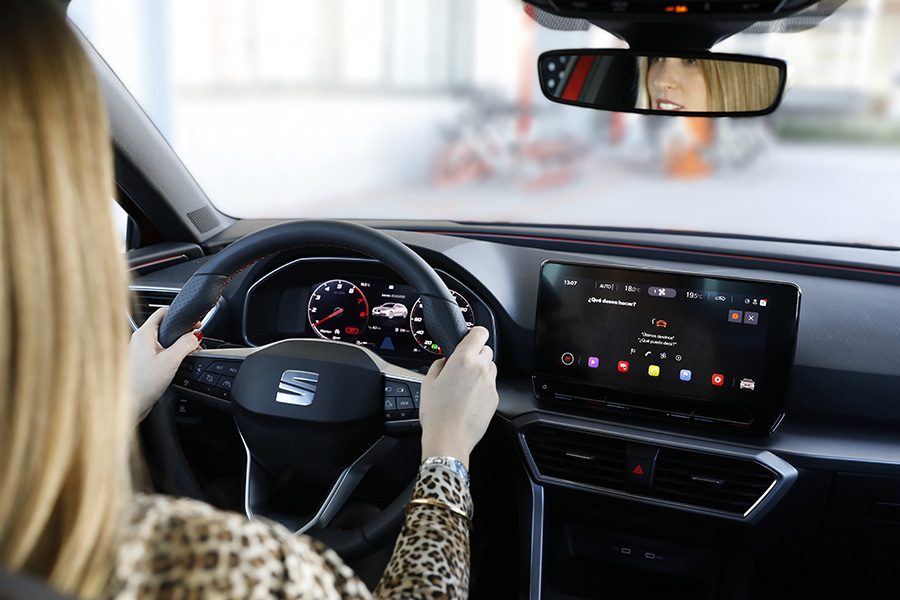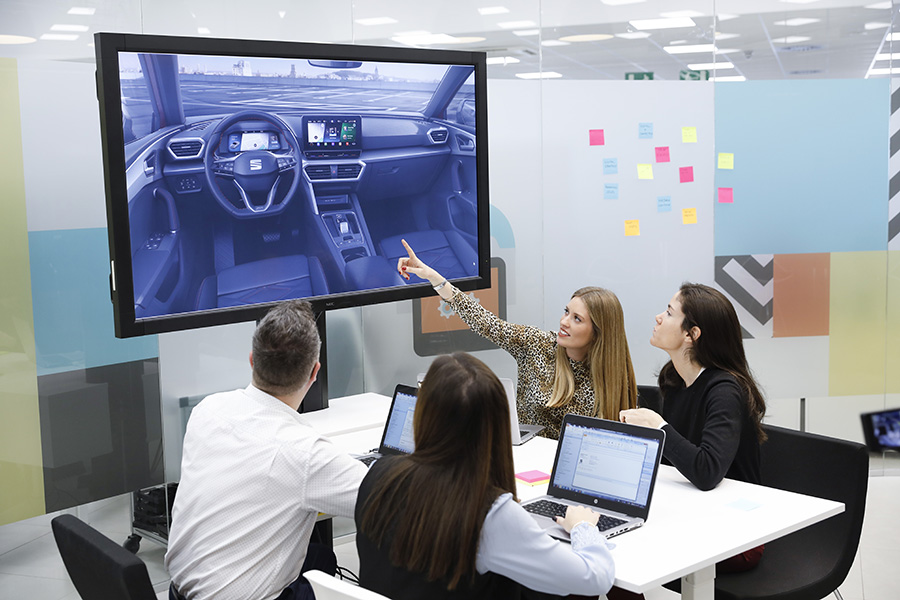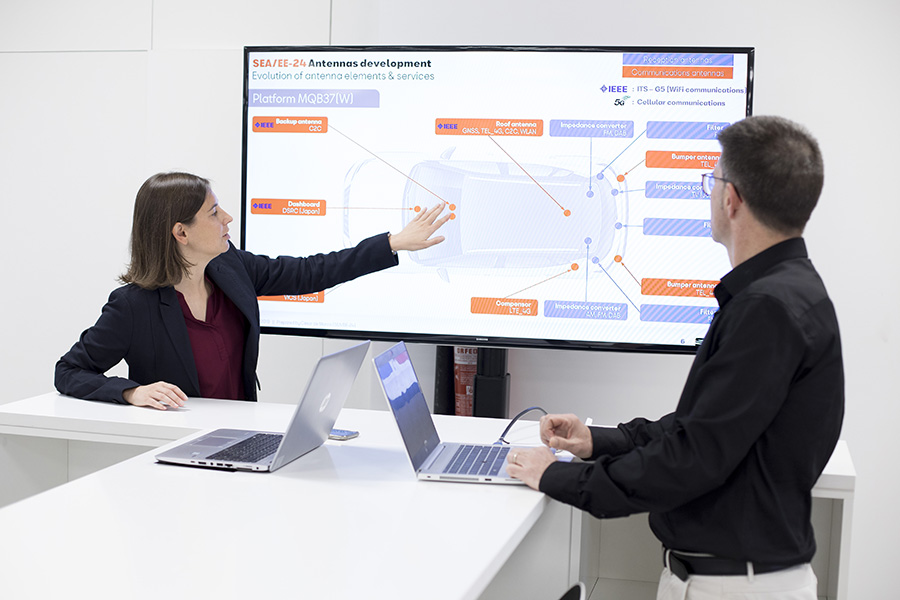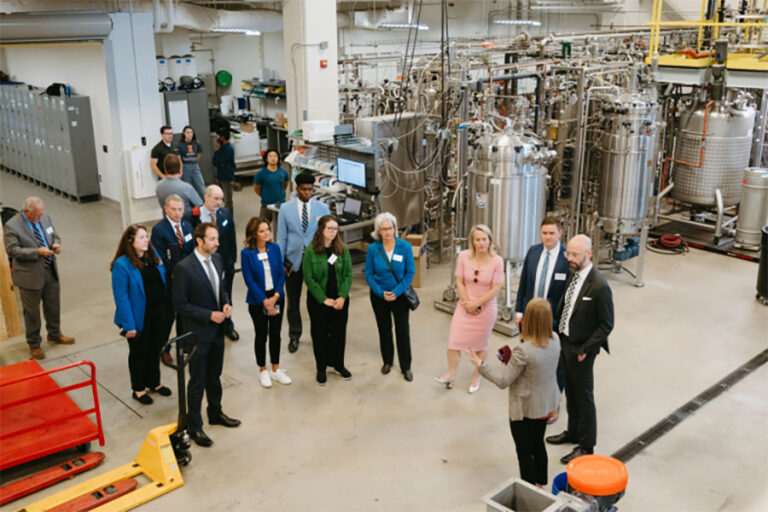
Women have influenced the evolution of motoring. The rear-view mirror, turn signals and road lines are all innovations with a female flare. Their role was key in the past, but will be even more so in the future, on the road to electric, shared and connected mobility.
On the one hand, as users: various studies indicate that, due to their interests and driving habits, they will be instrumental in the electric car and carsharing market. But also as creators. For example, three women at SEAT are leading the development of such vital areas for the future as connectivity, voice assistants and cybersecurity. These are their stories.
Loud and clear. At only 27, Anna Homs is developing the voice assistants we will be using in 2030. She leads a team of professionals from China, the USA and Germany who study user’s needs and think of concepts ten years in advance. “Voice assistants are going to be a key element in the future of mobility, as it is a simple and comfortable form of communication that is increasingly common at home, with the mobile phone and, of course, in the car”, says Anna, SEAT engineer and Volkswagen Group Innovation Project Manager.

For this industrial engineer, the exciting thing about the automotive world is the disruption it is experiencing at this very moment. “We are in a crucial moment of many changes and challenges and I think it’s essential to get involved to do it your way”, she points out.
A connected future. Connectivity is a central element in the mobility of today and tomorrow. For Paqui Lizana, SEAT’s Digital Products Manager, the main objective of her work is to make increasingly complex things easier to deal with. “In a fully connected ecosystem, we will proactively suggest to the user the best way to get around at all times, whether by car, motorcycle… With the future in mind, digital products will be the key to giving them the experience they want and letting them take it from one vehicle to another”, she explains.

A fellow engineer, but in telecommunications, she agrees with Anna Homs on the importance of the moment. “My passion is to bring about change. I believe that our contribution is very valuable, as the key to innovation is diversity”, she claimos. Now 37, she has seen the number of women in the engineering sector grow. In countries like the United Kingdom, the number of female engineers has doubled in five years, reaching 58,000 in 2018, according to the Women in STEM association.
In order to make technical studies and the automotive sector more attractive to female candidates, SEAT has started to collaborate with the UPC (Universitat Politècnica de Catalunya) in their STEM program. This initiative aims to promote technical carriers directly to children between 9 and 12 years old, the age where it is considered that they decide their professional preferences. Some female engineers working at SEAT will give lectures in their middle schools to inform female students of the opportunities available to them after their studies.

Cybersecurity of tomorrow. And for that future of connected mobility to be secure, Mareike Gross’s role is critical. In SEAT’s Development Department, she leads the Electrical Systems, Packaging and Cybersecurity team. “We’re working very hard on the digital protection of cars to protect them from hypothetical attacks”, Mareike explains.
Although she graduated in Economics, her career has always been linked to automotive development. She grew up near Stuttgart (Germany), the city that thrives on the motor industry. “When I came to SEAT, I was happy to see the number of women working in development. I really think it’s important that we are here, because we have to design mobility that takes into account different interests and needs, mobility that is all-inclusive”, she says.

Instrumental in electric and shared mobility. It is because of these interests and needs that women will revolutionise the sales of electric car, according to a study by the University of Sussex and Denmark’s Aarhus University. They give more priority to safety and user-friendliness and take greater account of costs and the environment.
This is why carsharing will also have great potential among them, a report by the European Commission confirms. For example, the annual distance travelled by female drivers tends to be shorter than that of male drivers and carsharing is considered to be more effective for a range of 15,000 to 18,000 kilometres per year![]()









